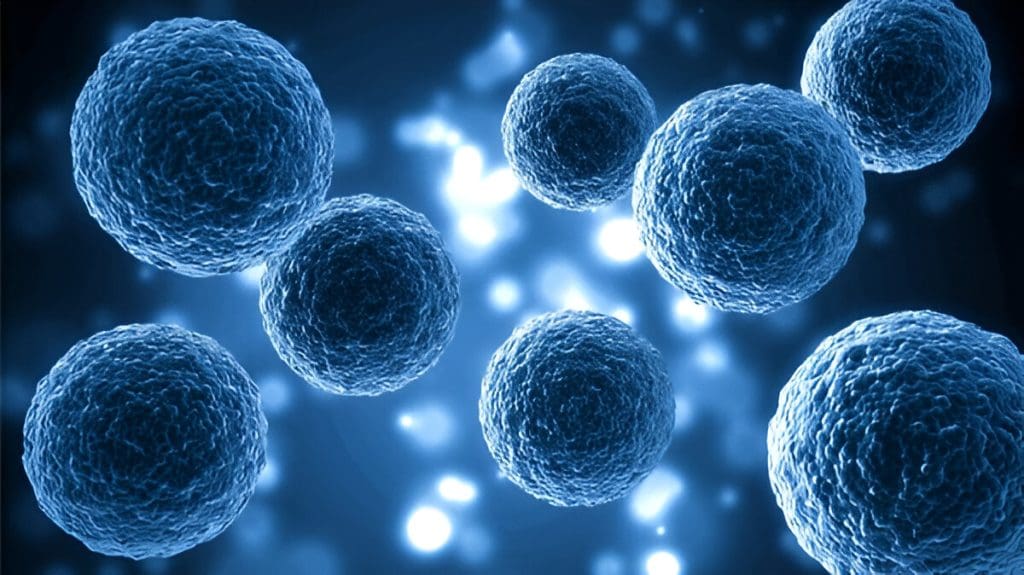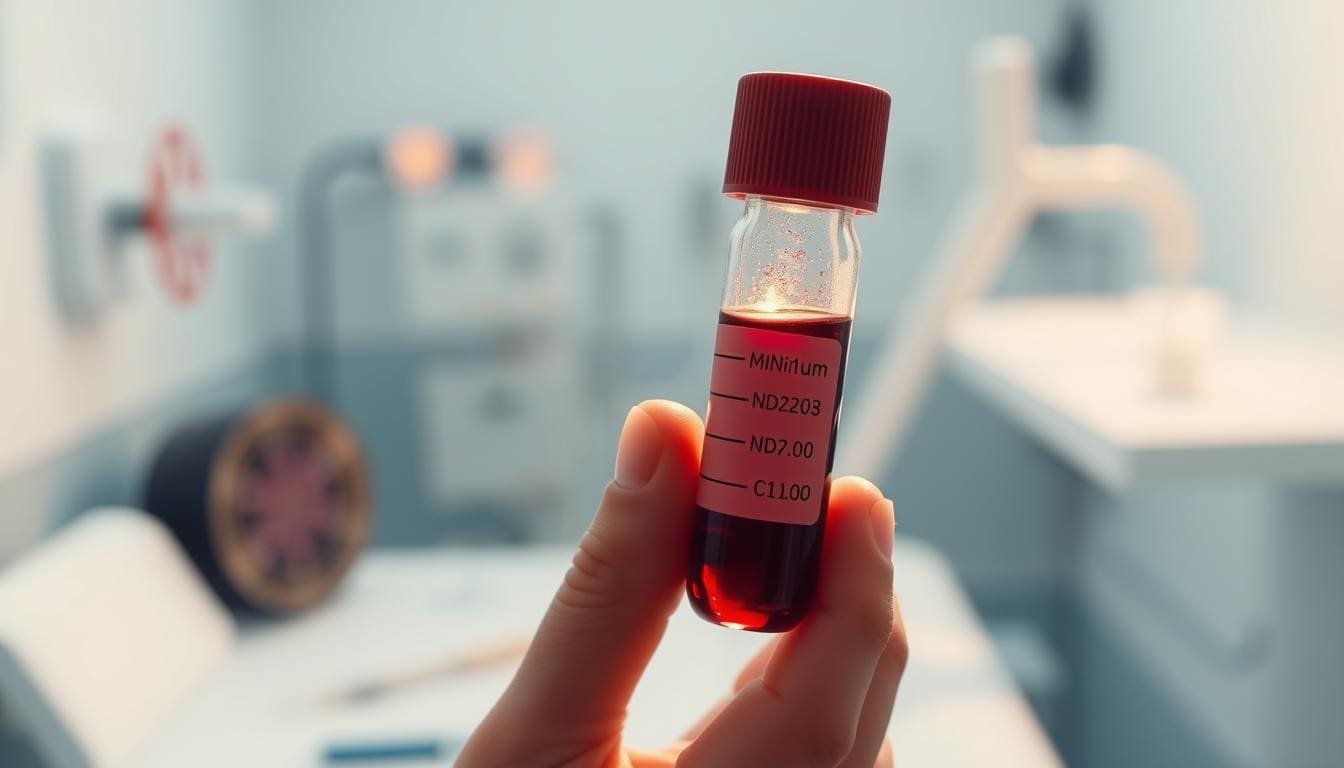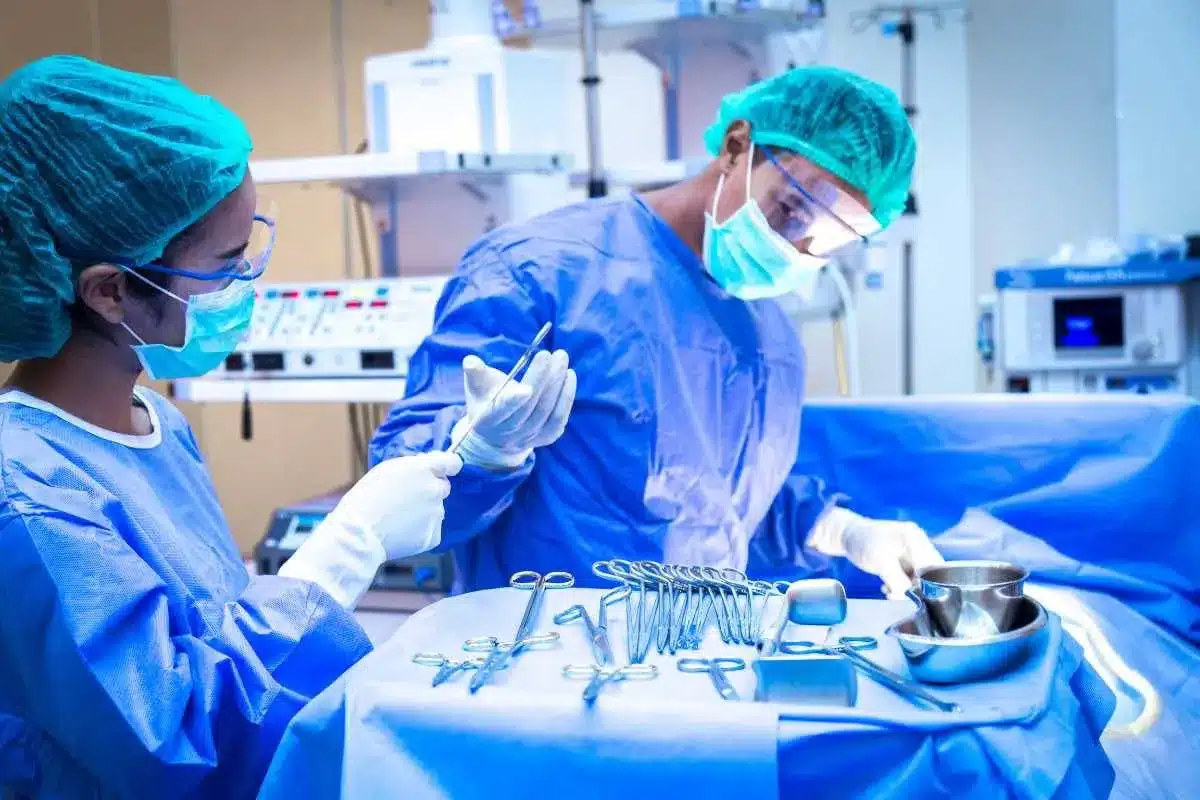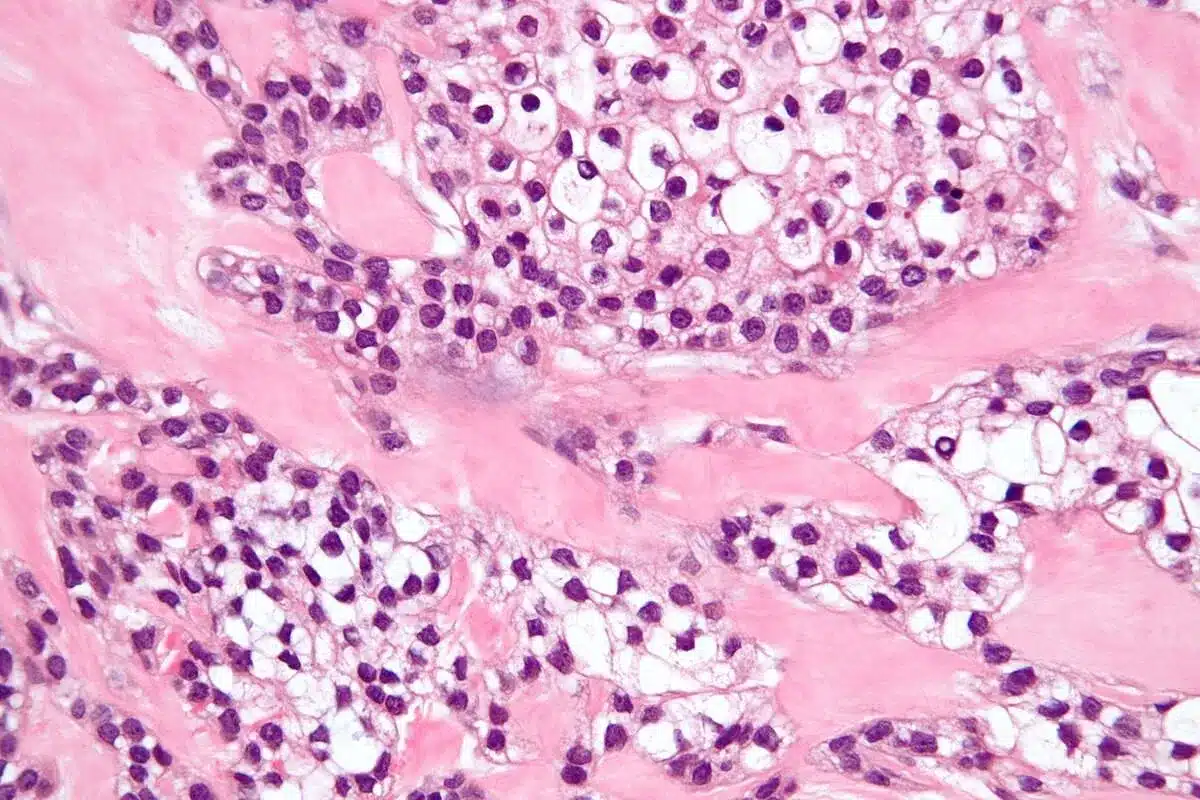
The link between caffeine consumption and stem cell treatment is getting a lot of attention. As stem cell therapies grow, knowing how daily habits affect them is key.
Studies are looking into how caffeine affects mesenchymal stem cells. These cells are very important in regenerative medicine. The effects of caffeine on them could change how well stem cell treatments work.
Key Takeaways
- Caffeine may influence the viability of mesenchymal stem cells.
- The impact of caffeine on stem cell treatment outcomes is a growing area of research.
- Understanding the interaction between caffeine and stem cells is crucial for optimizing treatment protocols.
- Further studies are needed to fully elucidate the effects of caffeine on stem cell therapies.
- Patients undergoing stem cell treatment should be aware of the potential effects of caffeine consumption.
The Science of Mesenchymal Stem Cells in Regenerative Medicine

Mesenchymal stem cells are leading the way in regenerative medicine. They help repair tissues and treat diseases. These cells can turn into different types of cells, like bone and fat cells, making them very useful for healing.
Definition and Biological Properties of MSCs
Mesenchymal stem cells (MSCs) are found in tissues like bone marrow and fat. They can grow and change into many cell types. Key properties of MSCs include:
- Plasticity: The ability to differentiate into various cell types.
- Immunomodulation: MSCs can modulate the immune response, reducing inflammation.
- Secretion of growth factors: MSCs release factors that promote tissue repair and regeneration.
Sources and Harvesting Methods
MSCs can come from different places, like bone marrow and fat. The choice of source often depends on the specific application and the desired properties of the MSCs. To get MSCs from bone marrow, doctors use a technique called aspiration.
Getting MSCs involves several steps:
- Aspiration or extraction of the tissue.
- Processing of the tissue to isolate MSCs.
- Cultivation of MSCs in appropriate media to expand their numbers.
Therapeutic Applications in Modern Medicine
MSCs are used in many ways because of their healing abilities. They can turn into different cells and help the immune system. Some uses include:
- Tissue engineering and repair.
- Treatment of autoimmune diseases.
- Supportive care in cancer therapy.
The field of MSCs in regenerative medicine is growing fast. Research is ongoing to make MSCs even more useful for healing. Knowing how MSCs work is key to using them well in medicine.
Caffeine: Molecular Structure and Physiological Effects
Understanding caffeine’s molecular structure is key to knowing its effects on the body. Caffeine is a xanthine alkaloid compound that acts as a stimulant in humans.
Chemical Properties and Metabolism
Caffeine’s chemical formula is C8H10N4O2, with a molecular weight of 194.19 g/mol. It’s moderately soluble in water and highly soluble in organic solvents. The liver breaks it down mainly through the cytochrome P450 enzyme system, with paraxanthine being its major metabolite.
Many factors can affect how caffeine is metabolized. These include genetics, diet, and other medications. For example, some people may metabolize caffeine slower due to genetic differences in the CYP1A2 gene.
Systemic Effects on Human Physiology
Caffeine works by blocking adenosine receptors in the brain, making us more alert and awake. It also increases heart rate and blood pressure. Additionally, it can boost gastric acid secretion and gut motility.
It can improve cognitive function, such as concentration and reaction time. But too much caffeine can cause jitteriness, anxiety, and trouble sleeping.
Typical Consumption Patterns and Blood Concentrations
Caffeine is found in coffee, tea, energy drinks, and some foods and medications. Daily intake varies greatly among people, with some consuming a lot.
| Caffeine Source | Typical Serving Size | Caffeine Content (mg) |
| Coffee (brewed) | 8 oz | 95-200 |
| Tea (brewed) | 8 oz | 25-40 |
| Energy Drink | 8 oz | 80-120 |
Blood caffeine levels can change a lot based on how much is consumed, metabolism, and other factors. Peak levels are usually reached within 1-2 hours after drinking it.
Caffeine and Mesenchymal Stem Cells: Direct Interactions
Recent studies have shown how caffeine and MSCs interact. This interaction could lead to new treatments. Caffeine affects MSCs in many ways, including how they grow, renew themselves, and change into different cell types.
Cellular Receptors and Signaling Pathways
MSCs have receptors that caffeine can bind to, like adenosine receptors. This binding changes how MSCs work inside the cell. It affects the cAMP pathway, which is key for MSC function.
This change can impact how MSCs grow, change into different cells, and help fix tissues.
Effects on MSC Proliferation and Self-Renewal
Caffeine can either help or hurt MSC growth. It depends on how much caffeine is used and for how long.
Moderate levels of caffeine might help MSCs grow by affecting cell cycle regulators. But high concentrations can harm cells, making them less viable.
Impact on MSC Differentiation Capacity
Caffeine also changes how MSCs differentiate. It can affect the genes needed for MSCs to become bone, fat, or cartilage cells.
This effect on MSC differentiation is important for their use in medicine, especially in regenerative treatments.
Bone Marrow-Derived MSCs and Their Unique Response to Caffeine
MSCs from bone marrow are special. They are key in regenerative medicine. They can turn into different cell types and help fix tissues.
Distinctive Properties of Bone Marrow MSCs
Bone marrow MSCs have unique immunomodulatory properties. They help with blood cell creation. They can also become bone, cartilage, and fat cells. This makes them useful for treating many diseases.
They have special traits like:
- High ability to grow
- Can go to injured areas
- Help control the immune system
Caffeine-Induced Alterations in the Bone Marrow Niche
Caffeine changes the bone marrow niche. It affects how MSCs grow and change. Studies show caffeine can change the levels of growth factors and cytokines.
The bone marrow niche is a complex area. It helps blood stem cells grow. Changes here could affect how MSCs fix tissues.
Comparative Sensitivity Versus Other MSC Sources
Research shows MSCs from different places react differently to caffeine. Bone marrow MSCs might react differently than those from fat or umbilical cord blood.
Key differences are:
- Different adenosine receptors
- Varied growth rates
- Unique cytokine releases
Knowing these differences helps in making better treatments. Treatments that consider where MSCs come from and how caffeine affects them.
Dose-Dependent Effects of Caffeine on MSC Function
Understanding how caffeine affects MSCs is key for better stem cell treatments. The impact of caffeine on MSCs changes with the amount used. This means we need to look closely at different doses.
Low-Dose Caffeine Exposure (1-5 μM)
At low doses (1-5 μM), caffeine doesn’t much affect MSCs. Research shows MSCs can still grow and change into different cell types. A study on human MSCs found caffeine at these levels doesn’t change important stem cell markers.
“The effects of low-dose caffeine on MSCs are generally considered to be negligible, suggesting that moderate caffeine consumption may not adversely affect stem cell therapy outcomes.”
Moderate-Dose Caffeine Exposure (5-20 μM)
Moderate caffeine (5-20 μM) has more impact on MSCs. Studies suggest it can help MSCs move better and change the way they release certain proteins. But how it affects MSC growth and change is still being studied.
| Caffeine Concentration (μM) | Effect on MSC Migration | Cytokine Secretion |
| 5 | Moderate Increase | Enhanced IL-6 secretion |
| 10 | Significant Increase | Moderate increase in VEGF |
| 20 | Maximum Effect | Significant increase in IL-6 and VEGF |
High-Dose Caffeine Exposure (>20 μM)
High caffeine (>20 μM) can harm MSCs, making them less viable and less able to change into different cells. It’s important to keep doses low in treatments to avoid bad results.
Duration of Exposure Considerations
How long MSCs are exposed to caffeine also matters. Even small amounts over time can add up and affect MSCs. More research is needed to understand how caffeine levels and time together affect MSCs.
MSC Immunomodulation: How Caffeine Changes the Equation
It’s important to know how caffeine affects MSC immunomodulation for better stem cell treatments. Mesenchymal stem cells (MSCs) are key in regenerative medicine because they can change how our immune system works.
Normal Immunomodulatory Functions of MSCs
MSCs help keep our immune system balanced by controlling different immune cells. They do this through direct cell-to-cell contact and by making immunomodulatory cytokines like TGF-β, IL-10, and IDO.
They help by stopping too much immune activity, making our body more tolerant, and helping repair tissues. This makes MSCs a good choice for treating autoimmune diseases and preventing graft-versus-host disease.
Caffeine-Induced Alterations in Cytokine Production
Caffeine changes how MSCs make cytokines, affecting their ability to regulate the immune system. Research shows caffeine can change the balance of pro-inflammatory and anti-inflammatory cytokines.
For example, caffeine can affect IL-6 levels, which can either help or hurt inflammation. This means caffeine can either help or hinder how well MSCs work.
Effects on T-Cell and B-Cell Regulation
MSCs control T-cells and B-cells through secreted factors that slow down T-cell growth and create T-regulatory cells. Caffeine can change these interactions, possibly affecting how well MSCs work.
Studies show caffeine can change how MSCs stop T-cells from getting too active. It might also change how MSCs control B-cells, affecting antibody production and B-cell types.
Clinical Implications for Autoimmune Conditions
The effect of caffeine on MSCs is important for patients with autoimmune diseases getting MSC therapy. Knowing how caffeine affects MSCs can help make treatment plans better for each patient.
For instance, people with rheumatoid arthritis or lupus might see better results from MSC therapy if they avoid caffeine. So, doctors should think about caffeine intake when deciding if MSC therapy is right for a patient.
Neutrophil Function in the Context of Stem Cell Therapy
Neutrophils are key in fixing and growing new tissue. They work closely with mesenchymal stem cells (MSCs) in regenerative medicine. Being the most common white blood cells, they are crucial for our body’s first defense.
Neutrophil Biology and Role in Tissue Repair
Neutrophils quickly respond to inflammation and injury. They start the healing process by removing debris and pathogens. They also release substances that help in healing.
But their job doesn’t stop there. They also help control the immune response and guide other cells, like MSCs.
MSC-Neutrophil Cross-Talk Mechanisms
MSCs and neutrophils talk to each other in a complex way. MSCs can change how neutrophils work by sending out signals. Neutrophils, in turn, can send messages to MSCs.
This conversation is important for healing and controlling the immune system. MSCs can calm down neutrophils to prevent too much inflammation.
How Caffeine Disrupts This Cellular Communication
Caffeine, a common stimulant, can disrupt communication between MSCs and neutrophils. It blocks adenosine receptors, changing how they communicate.
This change could affect how well MSCs help in healing. It’s important to understand how caffeine impacts this interaction for better treatments.
We need more research to figure out how caffeine affects MSC-neutrophil talks. And we need to know how this affects treatments.
Phagocytosis and Reactive Oxygen Species (ROS) Production
It’s important to know how mesenchymal stem cells (MSCs) work with phagocytosis and ROS production. Phagocytosis helps fix tissues by removing foreign particles. ROS are oxygen molecules that help cells talk to each other and stay healthy.
MSC Regulation of Phagocytic Activity
MSCs help control how immune cells like macrophages and neutrophils work. They do this by making the immune system better at getting rid of harmful stuff. They do this by sending out special helpers called cytokines and growth factors.
For example, MSCs can make macrophages work better. This helps get rid of dead cells and debris. It’s important for keeping tissues healthy and preventing long-term inflammation.
Caffeine’s Impact on ROS Generation
Caffeine, found in many drinks, can change how cells make ROS. At the right amount, it can help control ROS levels by changing how certain enzymes work. But how caffeine affects MSC therapy is not always clear.
Studies show caffeine can either raise or lower ROS levels, depending on the situation. Too much ROS can harm cells and slow down healing. But the right amount is needed for healing to happen.
Consequences for Tissue Healing and Regeneration
The way MSCs, phagocytosis, and ROS work together is key for fixing tissues. MSCs help make the environment right for healing. But caffeine can mess with this balance, affecting how well treatments work.
It’s important to understand how caffeine affects MSCs and healing. This knowledge can help make stem cell therapy better. It can lead to better results for patients.
Neutrophil Survival and Apoptosis: The Caffeine Factor
Mesenchymal stem cells (MSCs) and neutrophils work together to control inflammation. Caffeine has been found to affect this balance. Neutrophils are important in the body’s first defense against infection.
MSC-Mediated Neutrophil Survival Pathways
MSCs help neutrophils live longer by releasing factors like granulocyte-colony stimulating factor (G-CSF) and interleukin-6 (IL-6). These factors help neutrophils fight off infections better.
“MSCs can modulate the immune response by influencing neutrophil survival and function,” as noted in recent research. This shows how MSCs and neutrophils work together in fighting inflammation.
Caffeine’s Interference with Apoptotic Mechanisms
Caffeine, a common stimulant, can affect how MSCs control neutrophil death. It blocks adenosine receptors, changing how neutrophils live or die. Research shows caffeine can make neutrophils die faster, which might upset the balance of inflammation.
Net Effect on Inflammatory Resolution
The effect of caffeine on inflammation is complex. It depends on how it affects neutrophil death and MSC survival signals. Caffeine might help clear neutrophils but could also mess with how inflammation ends.
It’s important to understand how MSCs, neutrophils, and caffeine interact. More research is needed to see how caffeine affects neutrophil survival and death. This knowledge will help improve MSC-based treatments.
Co-culture Experimental Models: MSCs and Neutrophils Under Caffeine Influence
Researchers use co-culture models to study how caffeine affects MSCs and neutrophils. These models are designed to mimic real-life conditions. They help us understand how different cells interact when caffeine is present.
In Vitro Study Designs and Methodologies
Experiments with MSCs and neutrophils are done in transwell systems or mixed culture approaches. Transwell systems keep cells separate but allow them to share substances. Mixed cultures let cells touch each other directly. The method chosen depends on the question being asked.
The amount of caffeine used in these studies can vary. It might be similar to what we drink or more, depending on the study’s goals.
Key Findings from Recent Research
Recent studies show caffeine can change how MSCs work. It affects their ability to control neutrophils. Caffeine can also change the way MSCs make cytokines and chemokines. This, in turn, can influence neutrophil movement and activity.
Also, caffeine can impact neutrophil survival and death. This might happen because of how MSCs and neutrophils talk to each other. These discoveries could mean caffeine affects how well MSC treatments work.
Limitations of Laboratory Models
Co-culture models offer insights into MSCs and neutrophils with caffeine. But, they have limits. For example, they don’t perfectly match the real body’s environment, where many cells and substances interact.
Most co-culture studies are static, unlike the body’s dynamic state. To improve, future studies should aim for models that better mimic life inside us.
Oxidative Stress Modulation: Competing Effects of MSCs and Caffeine
It’s important to know how MSCs and caffeine work together when fighting oxidative stress. Oxidative stress happens when there’s too much damage from harmful compounds in the body.
MSCs as Natural Antioxidant Mediators
MSCs are known for their strong antioxidant powers. They help reduce oxidative stress in many ways. This includes making antioxidant enzymes and controlling the immune system.
- Secretion of antioxidant enzymes such as superoxide dismutase and glutathione peroxidase.
- Modulation of immune responses to reduce ROS production.
- Promotion of cellular repair mechanisms.
Caffeine’s Paradoxical Role in Oxidative Balance
Caffeine’s effect on oxidative stress is complex. It can act as both an antioxidant and a pro-oxidant. At the right amount, it boosts antioxidants. But too much can increase harmful compounds.
Strategies to Optimize Antioxidant Benefits During Treatment
To get the most from MSCs in treatments, several steps can be taken. These include watching caffeine intake, adjusting MSC doses, and adding antioxidant therapies.
- Monitor and adjust caffeine consumption to avoid excessive intake.
- Optimize MSC dosing to achieve the desired therapeutic effect without overloading the system.
- Consider supplementary antioxidant therapies to enhance MSC-mediated antioxidant effects.
Understanding how MSCs and caffeine affect oxidative stress is key. By using the right strategies, healthcare providers can make stem cell treatments more effective.
MSC and Inflammation: Caffeine as a Modifying Factor
The relationship between mesenchymal stem cells (MSCs) and inflammation is complex. It can be affected by many things, like caffeine. MSCs are known for their strong anti-inflammatory powers, which help fix and grow tissues. But, caffeine, a common stimulant, might change how MSCs work.
Anti-inflammatory Mechanisms of MSCs
MSCs fight inflammation in several ways. They release anti-inflammatory cytokines like IL-10 and TGF-β, which lower inflammation. They also modulate the immune response by stopping T-cells from growing and helping create regulatory T-cells.
These actions are key in treating inflammatory diseases and injuries. By reducing inflammation, MSCs help create a better healing environment.
Pro-inflammatory Potential of Caffeine
Caffeine can have both good and bad effects on inflammation, depending on the amount. At high doses, it can increase pro-inflammatory cytokines, which might lessen MSCs’ anti-inflammatory effects.
This is especially important in MSC therapy. People getting stem cell treatments might drink coffee, energy drinks, or take caffeine in medicines.
| Caffeine Dose | Effect on Inflammation | Implication for MSC Therapy |
| Low (<100 mg/day) | Mild anti-inflammatory effect | Minimal impact on MSC function |
| Moderate (100-200 mg/day) | Variable effects | Potential interaction with MSC anti-inflammatory mechanisms |
| High (>200 mg/day) | Pro-inflammatory effect | Possible reduction in MSC therapeutic efficacy |
Clinical Outcomes in Inflammatory Conditions
Caffeine’s effect on MSCs and inflammation is important for patients with inflammatory diseases. Research shows that caffeine can change how severe inflammation is in conditions like arthritis and multiple sclerosis.
For those getting MSC therapy, knowing about caffeine’s impact is key. Doctors might tell patients about caffeine intake guidelines to get the most from MSC treatment.
Adenosine Receptor Antagonism: The Molecular Basis of Caffeine’s Impact
To understand how caffeine affects MSCs, we need to look at adenosine receptor antagonism. Caffeine impacts many physiological processes. Its effects on stem cells are especially important in regenerative medicine.
Adenosine Signaling in Stem Cell Biology
Adenosine is a purine nucleoside that plays a key role in cellular signaling. It affects many physiological processes. In stem cell biology, adenosine signaling helps control cell growth, differentiation, and survival.
Adenosine receptors, like A1, A2A, A2B, and A3, are G protein-coupled receptors. They mediate these effects in stem cells.
Caffeine’s Competitive Inhibition Mechanism
Caffeine acts as a competitive antagonist to adenosine receptors, especially A1 and A2A. It binds to these receptors without activating them. This blocks adenosine’s action, influencing MSCs’ regulation.
Downstream Effects on Gene Expression and Protein Synthesis
The antagonism of adenosine receptors by caffeine changes intracellular signaling. This affects gene expression and protein synthesis in MSCs. For example, modulating A2A receptors can change the expression of genes involved in cell cycle and differentiation.
| Gene | Function | Effect of Caffeine |
| CDKN1A | Cell cycle regulation | Downregulated |
| RUNX2 | Osteogenic differentiation | Upregulated |
| PPARγ | Adipogenic differentiation | Downregulated |
Understanding how caffeine affects adenosine signaling helps predict stem cell therapy outcomes. This is especially true for individuals who consume caffeine.
Clinical Recommendations for Patients Receiving MSC Treatment
For patients getting MSC treatment, what they eat and drink matters a lot. This includes how much caffeine they have. As MSC therapy becomes more common, knowing how lifestyle affects it is key.
Evidence-Based Caffeine Intake Guidelines
Studies say moderate caffeine is okay, but what’s “moderate” differs for everyone. MSC patients should stick to 200mg of caffeine daily. That’s about one 12-ounce cup of coffee.
Key Considerations:
- How sensitive you are to caffeine can change a lot.
- Don’t forget caffeine in tea, chocolate, and some meds when counting your intake.
- If you have health issues or take certain meds, you might need to drink less caffeine.
Timing Considerations: Before, During, and After Treatment
When you drink caffeine before, during, or after MSC treatment might affect how well it works. While we need more studies, here’s what we know so far:
- Try not to have too much caffeine 24-48 hours before treatment.
- Stick to moderate caffeine during treatment cycles.
- Watch how caffeine affects your body’s response to treatment and adjust as needed.
Individual Variation Factors
Everyone reacts differently to caffeine because of genetics, meds, and health. Things like age, weight, and overall health affect how caffeine is broken down. This can change how it impacts MSC treatment.
Alternative Beverages and Dietary Recommendations
If you want to cut down on caffeine or find other drinks, here are some options:
- Herbal teas
- Decaffeinated coffee and tea
- Water
- Nutrient-rich drinks like milk or fortified plant-based milks
Eating a balanced diet with lots of fruits, veggies, whole grains, and lean proteins helps your health. It might also make MSC treatment work better.
Conclusion: Balancing Lifestyle Factors for Optimal Stem Cell Treatment Outcomes
It’s important to balance lifestyle factors for the best results from stem cell treatments. The way caffeine affects mesenchymal stem cells (MSCs) shows how complex MSC immune regulation is. Studies have found that caffeine can change how MSCs work, including their growth, development, and ability to calm the immune system.
Patients should know how much caffeine they drink and its impact on treatment success. By understanding lifestyle factors, like caffeine, patients can make better choices to improve their treatment.
Doctors should also think about how lifestyle affects MSC immune regulation. They can help patients live a balanced life to get the most from their treatment. This way, patients can get the best results from their stem cell therapy.
FAQ
How do MSCs from different sources respond to caffeine?
MSCs from different places, like bone marrow, react differently to caffeine. Knowing these differences helps predict caffeine’s effects on MSCs and treatment results.
MSCs from different places, like bone marrow, react differently to caffeine. Knowing these differences helps predict caffeine’s effects on MSCs and treatment results.
It’s important to have guidelines for caffeine during MSC treatment. Patients should think about when to drink caffeine, individual differences, and other drink options. This helps improve treatment results.
What is the role of adenosine receptor antagonism in caffeine’s impact on MSCs?
Caffeine blocks adenosine receptors, which affects MSC behavior. This can change gene and protein production, impacting MSC function.
How does caffeine impact the production of reactive oxygen species (ROS) and phagocytic activity?
Caffeine can change ROS production and phagocytic activity. This might affect healing and regeneration. MSCs help control these processes, and caffeine can alter their work.
What are the effects of different caffeine concentrations on MSCs?
Caffeine’s effects on MSCs depend on the amount. Different doses can affect MSC growth, development, and immune control in different ways.
How does caffeine influence the immunomodulatory functions of MSCs?
Caffeine can change how MSCs control the immune system. It affects cytokine production and T-cell and B-cell regulation. This could affect autoimmune diseases and the immune response.
What is the impact of caffeine on neutrophil function in the context of stem cell therapy?
Caffeine can mess with how MSCs talk to neutrophils. This affects neutrophil survival and work. It might impact tissue repair and stem cell therapy success.
How does caffeine affect the function of mesenchymal stem cells (MSCs)?
Caffeine can change how MSCs grow, renew themselves, and develop. It works with cell receptors and pathways, possibly changing how MSCs act.








